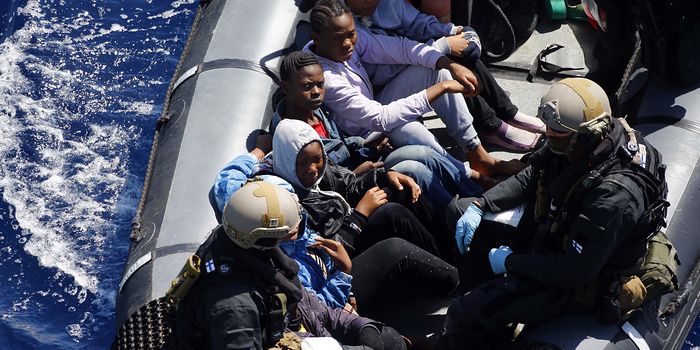At least 42 migrants are feared dead after a rubber boat carrying 49 people capsized off the Libyan coast, according to the UN’s International Organization for Migration (IOM). Only seven people survived the disaster after spending six days drifting at sea before being rescued by Libyan authorities.
The IOM reported that 29 of the missing were from Sudan, eight from Somalia, three from Cameroon, and two from Nigeria. Among the survivors, four were Sudanese, two Nigerian, and one Cameroonian. The agency described the tragedy as another reminder of the dangers faced by those attempting to reach Europe through unsafe routes.
In a separate incident, another boat carrying migrants from Libya reportedly capsized south of the Greek island of Crete, leaving at least three dead and 56 rescued. The UN Refugee Agency (UNHCR) said that by mid-October 2025, nearly 16,000 migrants had arrived in Crete since the beginning of the year.
Despite the falling numbers of irregular arrivals in Europe, hundreds of people continue to lose their lives each year attempting the dangerous Mediterranean crossing. The InfoMigrants website reported that irregular arrivals into the European Union dropped to around 240,000 in 2024, about 60,000 fewer than the previous year.
The decline is partly linked to tighter surveillance and interceptions along traditional land routes, forcing more migrants to risk their lives at sea. However, the perilous journeys continue as many still seek safety or better opportunities in Europe.
In response to the repeated tragedies, Doctors Without Borders (MSF) announced it will resume rescue operations in the Mediterranean using a new vessel, the Ovyon, after halting previous missions due to restrictions from the Italian government.
“We have returned to fulfill our duty to rescue people who are in distress at sea and forced to take unseaworthy boats,” said Juan Matías Gil, MSF’s Head of Search and Rescue Operations.
The incident shows the ongoing humanitarian crisis in the Mediterranean, where countless migrants continue to die or disappear while seeking refuge, highlighting the urgent need for coordinated international efforts to ensure safer migration routes.

